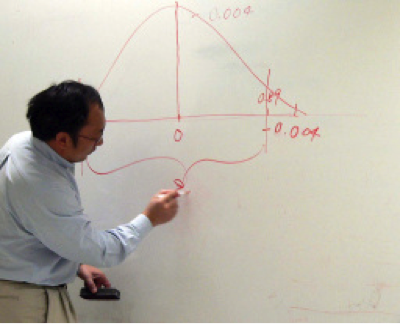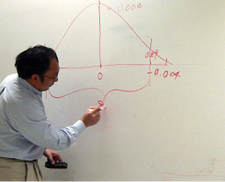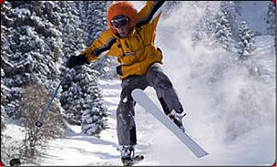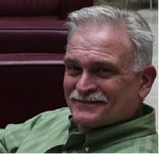CEO Blog - Advice for CEOs on growth and scaling
Most Leaders are Made Not Born—And They Need to be Developed

Born leader or made leader—do they both exist?
There is a world of difference between knowing about leadership and becoming an effective leader. I may be wrong about this, but from my reading and conversations with colleagues and clients, I get the impression that relatively few supervisors and managers and even fewer C-level executives, entrepreneurs and board members actively pursue disciplined professional leadership development. They read books, articles and blogs about leadership, and they attend workshops and seminars—so they know about leadership. But were they born leaders or are they made leaders?
Is it true leaders are made not born?

Can leadership be made or are you born with it? Leadership coach and author Erika Andersen (Leading So People Follow) believes that like most human capabilities, leadership capability falls along a bell curve. There are born leaders (few) and there are made leaders (most).
There’s the 10-15% at the tip of the bell curve; they are born leaders who start out good and tend to get better.
At the bottom of the curve are the 10-15% of people who are never going to be very good leaders no matter how hard they try; they simply do not have the innate wiring.
In the middle of the curve is the vast majority of us; most of us have some degree of innate leadership capability that can be developed. This is where the real potential for made leaders lies.
Most of the people in the middle of the curve can actually become very good leaders—and even great leaders. Over time, they can acquire new leadership skills. They are not, however, likely to acquire and perfect those skills simply from reading books or attending an occasional seminar.
Made leaders can be taught and learned—but reading ain’t learning
Harold D. Stolovitch and Erica J. Keep’s book title Telling Ain’t Training has become an axiom in the learning field. The goal of training is not simply to pass on information; it is to teach new skills and change behavior. When you tell people about leadership or they read about leadership, they might intellectually understand what you want them to know, but that doesn’t mean that they have acquired new skills.

Think about learning to ski. Let’s say someone gives you verbal instructions on how it is done, shows you a video, and provides you with a how-to manual to read. Are you ready to head off to Aspen, strap on some skis and hurl yourself down the advanced slopes? There is a world of difference between knowing about skiing and having the skill to ski. Most people need someone to help them practice some skills (like how to stop) on the bunny slope. They need to practice—and they need someone to work with them on the slopes.
Leadership development works the same way: we need to practice—and we need someone to work with us in the field so the leadership skills we learn become firmly ingrained and habitual and we can become "made leaders".
No one becomes a made leader alone
Many leadership lessons, however, are not just about acquiring new skills. Many leadership lessons are about unlearning old habits, default reactions, and assumptions about human nature in order to adopt new and different choices and behaviors. The key to this unlearning—and the becoming a good leader—is self-awareness.
By becoming self-aware I don’t mean becoming self-absorbed. I’ve worked with far too many “leaders” who are way too focused on themselves, their evolution, their drama—it’s all about me—to ever become really great leaders. Becoming truly self-aware means to cultivate an accurate sense of how you stand in the world—which includes such things as:
- Knowing your real strengths and weaknesses not only as a leader but also as a person.
- Having an accurate picture of the impact that you have on others.
- Knowing what you most care about.
- Having a moral compass and using it as a guidance system.
- Knowing how your actions line up with your promises.
The kind of self-awareness will never be found in a book or achieved in a 3-day seminar. You need someone to challenge you when you say you think you have great relationship-building skills, but people actually find you somewhat insensitive and overbearing. You need someone who can agree that you have excellent communication skills—and then ask you what keeps you from speaking up and using them. And you need someone who can give you a “thumbs up” when you nail it! None of us can really see ourselves with total clarity without assistance. As Andersen says, it’s like trying to know what you look like without having a mirror.
If you want to be an effective made leader, you need to learn certain skills through practice and coaching—but you also need to have an accurate picture of how you operate in the world. To get that picture you need someone (or perhaps even a group of people) who knows you well, wants what is best for you, and is willing to be drop-dead honest with you in the service of that.
Author
 Kevin Dincher is an organization development consultant, professional development coach and educator with 30 years of experience that includes not only OD consulting but also work in adult education, counseling psychology and crisis management, program and operations management, and human resources.
Kevin Dincher is an organization development consultant, professional development coach and educator with 30 years of experience that includes not only OD consulting but also work in adult education, counseling psychology and crisis management, program and operations management, and human resources.
Email: kevin@crazymoonconsulting.com
LinkedIn: kevindincher
Twitter: kdincher
Topics: Leadership, Leadership Traits
Sat, Sep 14, 2013Related Articles

- Press Releases
- Careers
- Case Studies
- Marketing Consultant Company
- Marketing Strategy Consultants
- Marketing Plan Consultants
- B2B Marketing Consultants
- Virtual CMO
- Marketing Consultant Outsourcing
- Fractional CMO
- What is a Fractional CMO
- Healthcare Marketing Consultant
- Marketing Consultant Houston TX Texas
- Marketing Consultant Texas TX
- Marketing Consultant Bay Area
- CEO Blog
- Ebooks Plus
- Executive Marketing Consultants
- Product Marketing Consultants
- B2C Marketing Consultants
- Virtual Marketing Consultants
- Senior Marketing Consultants
- Temporary CMO
- Hire a CMO
- Fractional CMO Salary
- Fractional CMO Responsibilities
- Marketing Consultant Austin TX Texas
- Marketing Consultant Dallas TX Texas
- Marketing Consultant San Antonio
- Helping Private Equity
- Private Equity Blog
- Leadership Team
- Privacy Policy
- Business Marketing Consultants
- Strategic Marketing Consultants
- Marketing Technology Consultants
- Sales and Marketing Consultants
- CMO Job Description
- CMO Salary
- Fractional CMO Agency
- Fractional CMO Services
- CPG Marketing Consultant
- Marketing Consultant San Diego
- Partners
Houston, TX 77056
© 2023 Chief Outsiders


